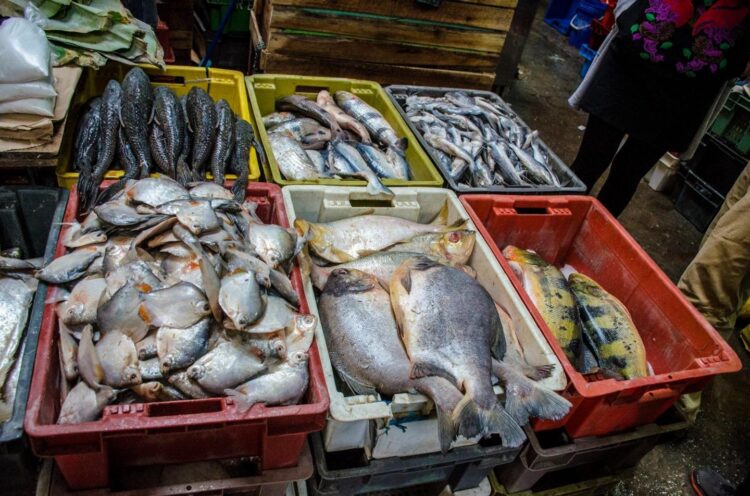
Credit: Image courtesy Juliano Palacios-Abrantes.
Seafood is a pillar of global food security–long recognized for its protein content. But research is highlighting a critical new link between the biodiversity of aquatic ecosystems and the micronutrient-rich seafood diets that help combat micronutrient deficiencies, or ‘hidden hunger’, in vulnerable populations.
“Getting the most nutritional value per gram of seafood is crucial in fighting hidden hunger and meeting United Nations Sustainable Development Goals,” says Dr. Joey Bernhardt, an ecologist from the University of British Columbia (UBC) who led the study, published this week in the Proceedings of the National Academy of Sciences.
“We’ve found that aquatic species contain distinct and complementary sets of micronutrients, so the most efficient way to fulfill our nutritional requirements is to fill our diets with small amounts of a variety of species. In order to be able to do that, we need to preserve the biodiversity of our aquatic ecosystems locally and globally.”
Dr. Bernhardt and UBC biodiversity researcher Dr. Mary O’Connor analyzed nutrient concentrations in the edible portions of 547 aquatic finfish and shellfish species. While different animals offered similar amounts of protein, they varied greatly in concentrations of micronutrients like iron, zinc, calcium and two fatty acids (docosahexaenoic and eicosapentaenoic acid, known as DHA and EPA). This variation is critical to the value of biodiversity to human well-being.
Most animals did not meet a single micronutrient recommended dietary allowance (RDA) in a 100g portion–fewer than half reached a target of 10% RDA for calcium, iron and EPA. Increasing biodiversity from one to 10 species in seafood diets was correlated with reaching more nutrient targets established by the US Institute of Medicine–and the nutritional value increased even when the seafood portion size remained constant.
“We know that biodiversity is a critical component of the many economic, cultural and ecological benefits humans enjoy from healthy natural ecosystems–from elevated forest production to water quality to nutrient cycling. Our analysis proves that biodiversity also enhances nutritional metrics in aquatic systems, and this benefit is at least as great as the biodiversity benefits we’ve seen in other sectors,” says Dr. O’Connor.
“And this study further demonstrates the importance of biodiversity, measured as the number of different kinds of animals out there, for human-wellbeing in wild ecosystems–showing that protecting biodiversity in nature is as important as maintaining agro-biodiversity.”
The finding is of particular importance coastal communities, including many Indigenous communities, who eat on average 15 times more seafood than other groups–and tend to rely more on locally available seafood.
“Aquatic ecosystems are under threat from human activities, and we’re observing major changes in biodiversity patterns worldwide,” adds Dr. Bernhardt.
“Until now, we didn’t understand the consequences of these aquatic biodiversity changes for human nutrition and health. With this new work, we have bridged the gap between biodiversity science and human nutrition science, demonstrating that aquatic biodiversity change can have direct and immediate impact on human nutrition and well-being.”
###
Media Contact
Chris Balma
[email protected]
Original Source
https:/





